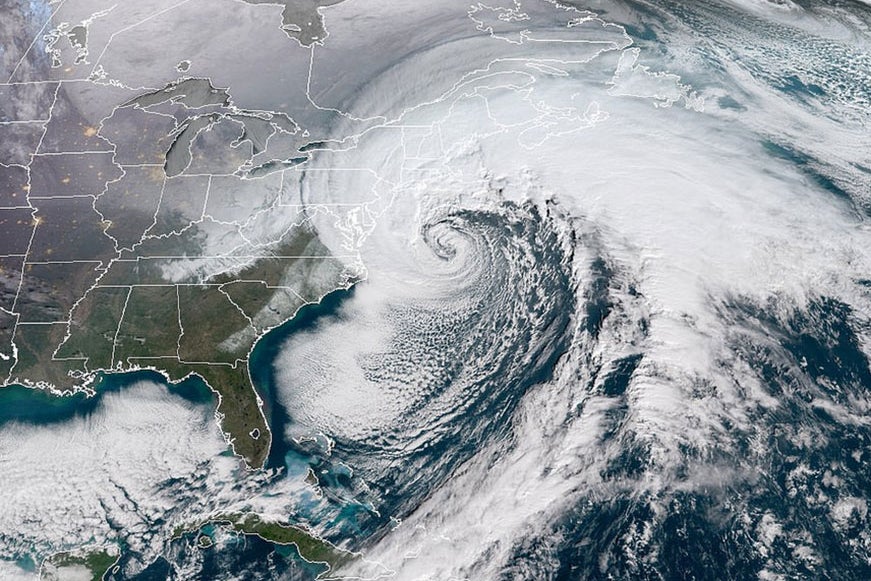Black carbon particles are spread throughout our atmosphere, produced by the burning of fuels or industrial processes. Credit: NASA’s Goddard Space Flight Center Scientific Visualization Studio
Researchers uncover how black carbon evolves from hydrophobic particles to cloud nucleation sites, eventually removing the heat-absorbing particles from the sky.
There’s a stubborn, heat-absorbing particle that floats along in Earth’s atmosphere: It initially doesn’t like water, it absorbs light, and it takes its time moving on. Black carbon in the atmosphere tends to linger until it finally absorbs enough water to fall from the sky. In the meantime, black carbon absorbs the Sun’s energy and heats up surrounding air, creating a radiative effect.
Fresh, young black carbon tends to be resistant to water. Over time, the particles age and become more hygroscopic, or able to absorb water from the air. But when does black carbon start absorbing water, act as cloud nuclei, and remove itself from the atmosphere?
Researchers previously investigated the hygroscopic conditions of black carbon in the lab, with limited conditions on chemical sources and water vapor conditions. In all of these studies, the cloud nucleation values of black carbon were indirect measurements.
In a new study by Hu et al., researchers concurrently measured the concentration of cloud condensation nuclei and black carbon particles. The sampling site was near heavily trafficked roads and industrial centers in Wuhan, China, an urban megacity in the central part of the country.
They first corrected for the size of particles, then measured cloud condensation nuclei and individual black carbon particles in certain levels of water supersaturation in the atmosphere. The team found that the activation diameter, or the size of the black carbon particle where half of the particles will nucleate and precipitate out, was 144 ± 21 nanometers at 0.2% supersaturation. How these black carbon–containing particles could act as cloud nuclei is determined by their size combined with their coatings, the authors say, and in general, the less saturated the air was, the bigger the particles had to be to nucleate.
In addition, the team found that a particle itself may influence the size of nucleation. For instance, the amount of organic content in a particle or any coating on the black carbon can change the hygroscopicity and therefore the activation.
The research team noted that their work can help improve estimates of the longevity of suspended black carbon particles in the atmosphere and therefore the radiative impacts those particles can have.
Reference: “Direct Quantification of Droplet Activation of Ambient Black Carbon Under Water Supersaturation” by Dawei Hu, Dantong Liu, Shaofei Kong, Delong Zhao, Yangzhou Wu, Siyuan Li, Shuo Ding, Shurui Zheng, Yi Cheng, Kang Hu, Zhaoze Deng, Yunfei Wu, Ping Tian, Quan Liu, Mengyu Huang and Deping Ding, 25 June 2021, JGR: Atmospheres.
DOI: 10.1029/2021JD034649
Note: This article have been indexed to our site. We do not claim legitimacy, ownership or copyright of any of the content above. To see the article at original source Click Here














